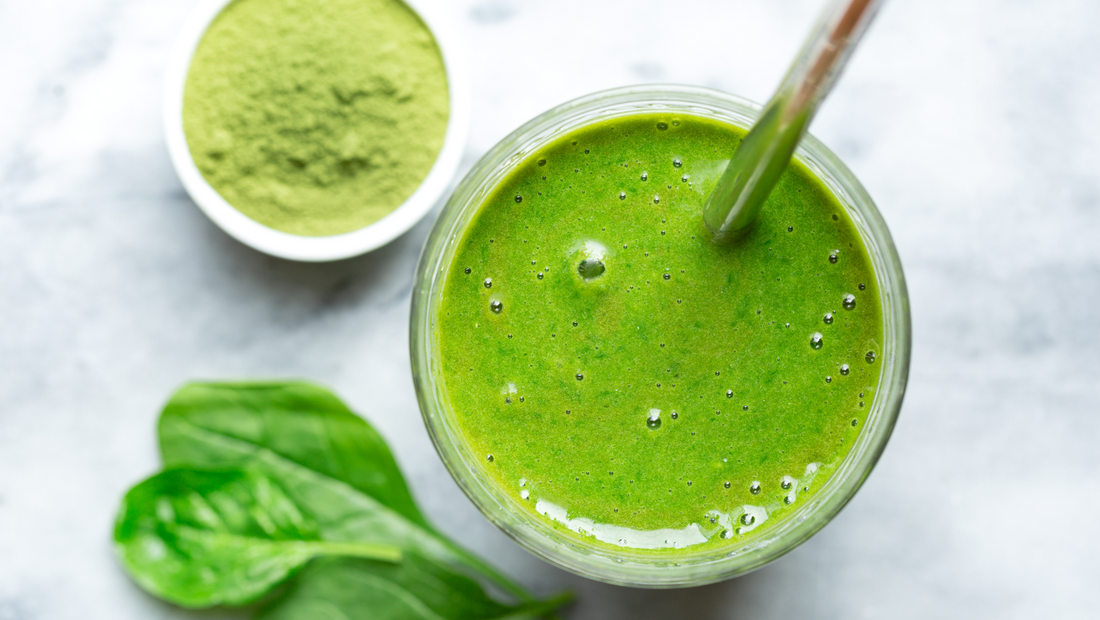In the realm of health and wellness, the debate between green juice and green powder has stirred up considerable curiosity. Both claim to offer a concentrated dose of essential nutrients, but which one truly reigns supreme? As we delve deeper into this discussion, it becomes evident that the verdict is not solely about convenience or taste but hinges significantly on nutritional value and absorption. Let’s explore the nuances and unveil the superior choice for your health journey.
Green Juice: Nature's Liquid Elixir
Green juice has surged in popularity as a quick and convenient way to infuse your body with a plethora of vitamins, minerals, and antioxidants. Crafted from fresh, raw fruits and vegetables like kale, spinach, cucumber, and apple, green juice packs a powerful nutritional punch in a refreshing liquid form. Its vibrant color is a testament to the abundance of chlorophyll and phytonutrients it contains, which contribute to detoxification, immune support, and overall vitality.
Pros of Green Juice
- Instant Nutrient Boost: With green juice, you can rapidly flood your system with a concentrated dose of vitamins and minerals, promoting energy and vitality.
- Hydration Enhancement: Green juices are predominantly water-based, aiding in hydration and supporting optimal bodily functions.
- Digestive Ease: The liquid form of green juice facilitates easy digestion and absorption, making it an ideal choice for those with sensitive stomachs or digestive issues.
Cons of Green Juice
- Perishability: Freshly pressed green juice has a short shelf life and must be consumed promptly to retain its nutritional potency.
- Calories and Sugar: Green juices, especially those incorporating sweeter fruits like apples or pears, can be calorie-dense and contain natural sugars. While these sugars are from whole foods, they can still pose concerns for individuals with sugar sensitivities or those prone to hypoglycemic mood swings, urging moderation and cautious consumption.
- Fiber Loss: While juicing extracts essential nutrients, it also removes insoluble fiber, which plays a crucial role in digestive health and satiety.

Green Powder: A Convenient Nutritional Arsenal
On the other hand, green powder emerges as a convenient solution for individuals seeking to fortify their diets with essential greens without the hassle of juicing or shopping for fresh produce daily. Typically composed of dehydrated and powdered greens, such as spirulina, chlorella, wheatgrass, and barley grass, green powders offer a concentrated source of nutrients in a convenient form.
Pros of Green Powder
- Shelf Stability: Green powders have a longer shelf life compared to fresh produce, allowing for greater flexibility and convenience in storage and usage.
- Portability: Whether at home, work, or on the go, green powder can easily be incorporated into smoothies, shakes, or even plain water, making it a versatile option for busy lifestyles.
- Nutrient Density: Despite the dehydration process, green powders retain a significant portion of their original nutrient content, providing a convenient way to supplement a balanced diet.
Cons of Green Powder
- Potential Additives: Some commercially available green powders may contain additives or fillers to enhance taste or texture, which may compromise their overall nutritional integrity.
- Absorption Challenges: While green powder offers a concentrated dose of nutrients, the body may not absorb them as efficiently as those from whole foods, leading to potential nutrient loss.
- Lack of Fiber: Similar to green juice, green powder lacks the fiber content found in whole fruits and vegetables, which is essential for digestive health and satiety.
The Nutritionalist's Perspective: Whole Foods Reign Supreme
It's essential to note that while both green juice and green powder offer convenience and concentrated nutrients, most nutritionists advocate for prioritizing whole foods in your diet. Whole fruits and vegetables provide not only essential vitamins and minerals but also dietary fiber, antioxidants, and phytonutrients in their natural form, which work synergistically to support overall health and well-being.
The Takeaway
In the eternal debate of green juice versus green powder, the answer lies not in absolutes but in understanding the unique benefits and considerations of each option. While green juice offers instant nutrition and hydration in a refreshing liquid form, green powder provides convenience and portability without sacrificing nutritional potency. However, it's crucial to remember that neither can fully substitute the nutritional richness and holistic benefits of consuming whole fruits and vegetables. So, whether you opt for a revitalizing glass of green juice or a convenient scoop of green powder, let it complement, rather than replace, a balanced diet rich in whole foods for optimal health and vitality.
By striking a harmonious balance between convenience and nutritional integrity, you can embark on a journey towards vibrant health and wellness, one green sip or scoop at a time.
